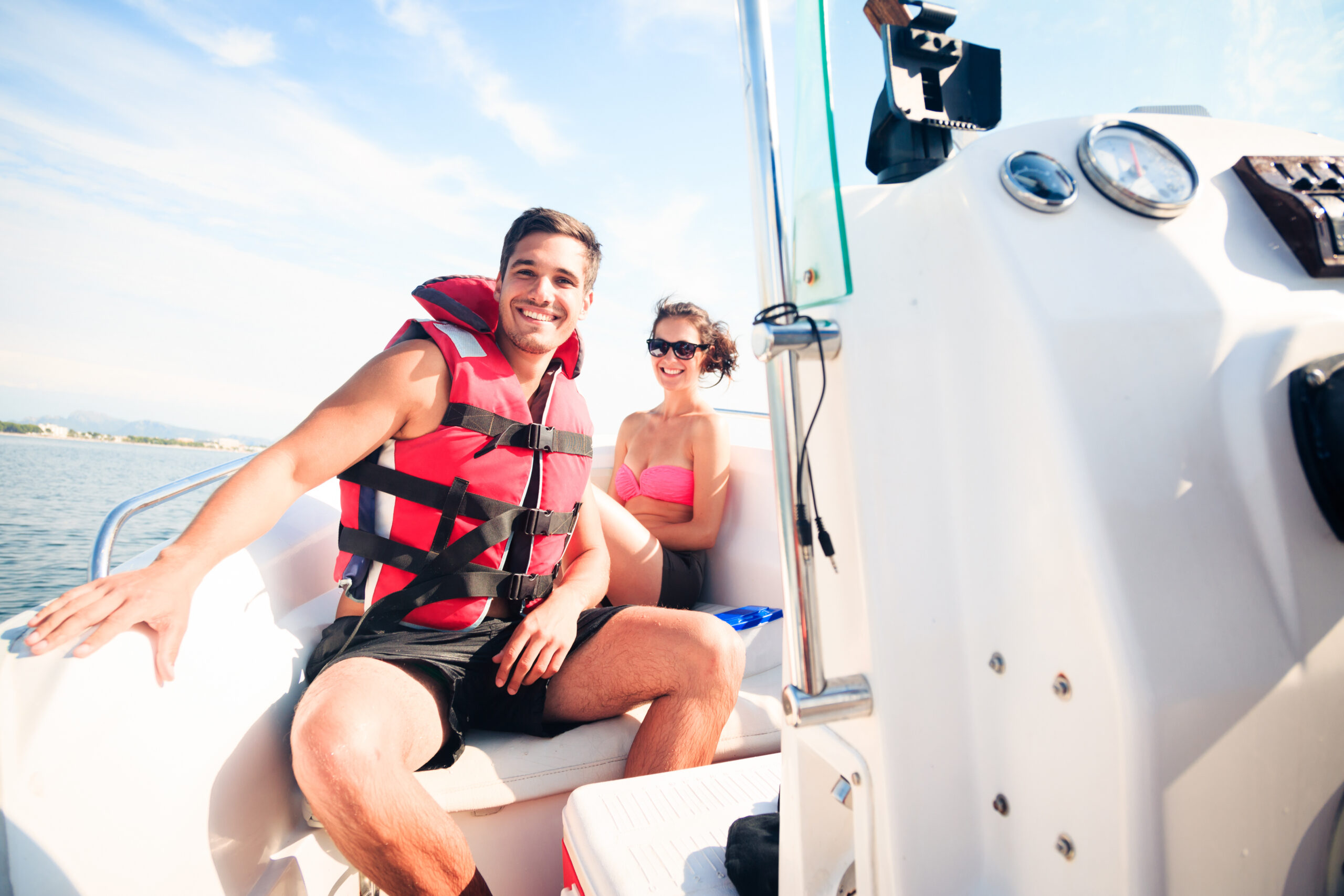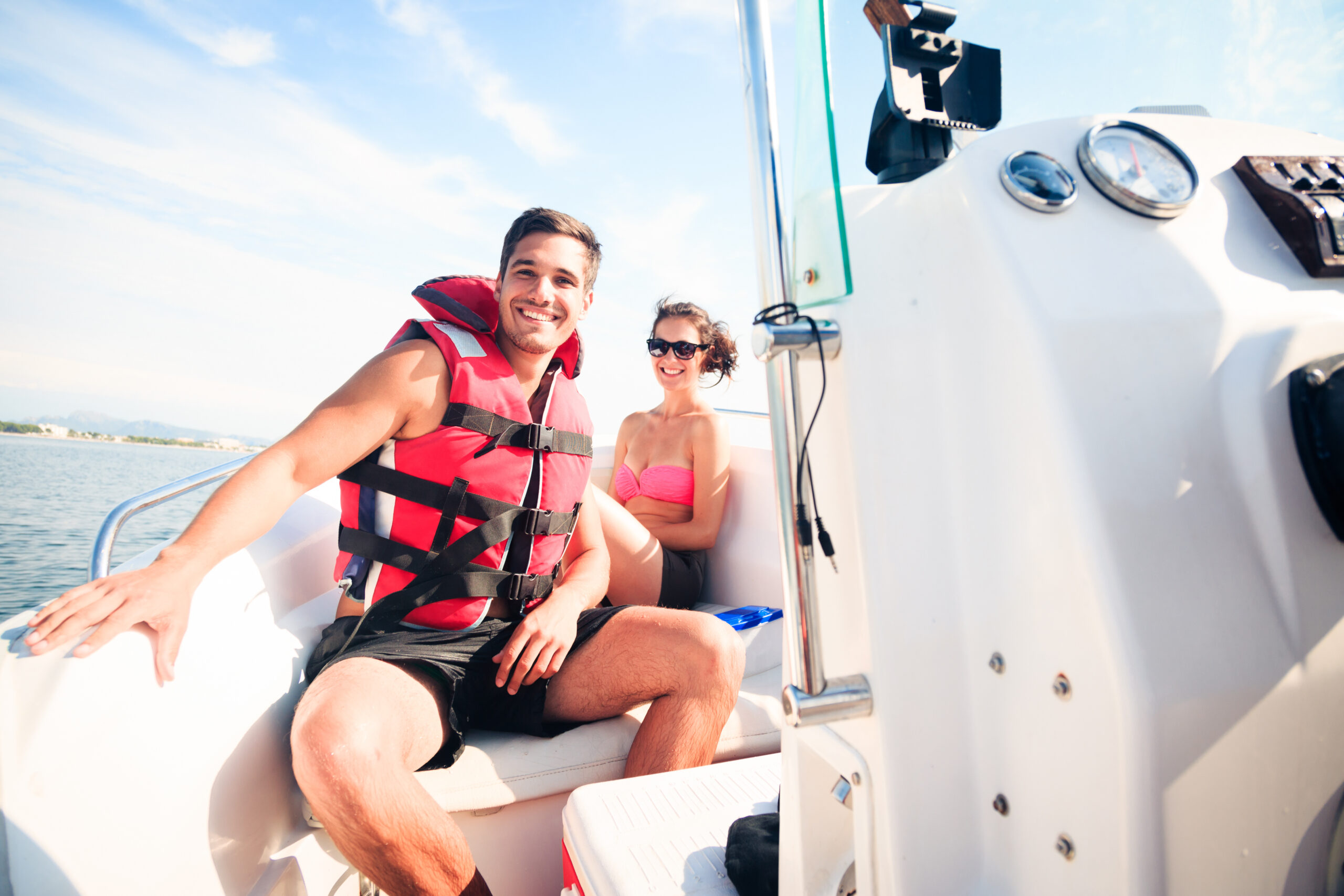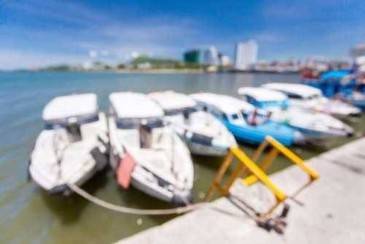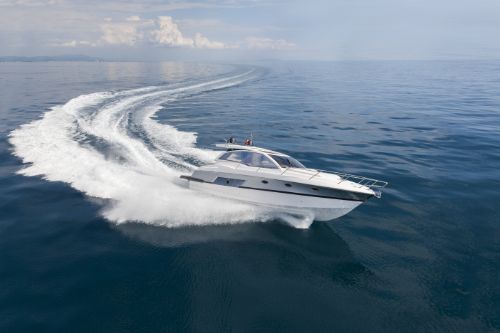Florida’s picturesque waterways and favorable weather make it a haven for boating enthusiasts. However, with the increasing number of boats on the water, the risk of accidents also rises. To ensure safety and protect victims, Florida has established strict liability laws for boating accidents. In this article, we will delve into the requirements and implications of these laws, shedding light on the legal obligations of boaters in Florida.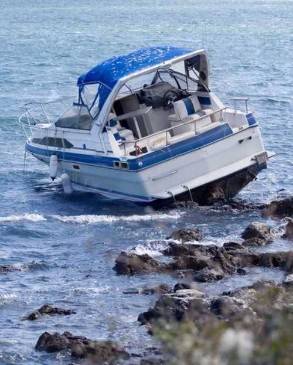
The Concept of Strict Liability in Boating Accidents:
Unlike cases involving negligence, where fault needs to be established, strict liability laws hold the owner or operator of a vessel responsible for injuries and damages resulting from a boating accident, regardless of fault. This legal doctrine emphasizes the need for boat owners and operators to prioritize safety and take necessary precautions to prevent accidents.
Requirements of Florida’s Strict Liability Laws:
Vessel Ownership and Control:
Florida’s strict liability laws apply to boat owners and operators. If you own a vessel and allow someone else to operate it with your consent, you may be held liable for any accidents they cause while operating your boat. Similarly, if you are the operator of a vessel, you are responsible for any injuries or damages caused due to your negligence or violation of boating regulations.
Injuries and Damages Covered:
Florida’s strict liability laws cover a wide range of injuries and damages resulting from boating accidents. These may include physical injuries, emotional distress, property damage, medical expenses, loss of income, and pain and suffering experienced by the victims.
Proving the Accident and Damages:
To establish a claim under Florida’s strict liability laws, certain elements need to be proven. These elements include demonstrating that an accident occurred, the accident resulted from the operation of a vessel, the injured party suffered damages, and the owner or operator of the vessel is responsible for the accident.
Exceptions and Defenses:
While strict liability laws place significant responsibility on boat owners and operators, there are exceptions and defenses available to them. These may include:
Statutory Exceptions:
Certain circumstances may exempt boat owners and operators from strict liability. For example, if the accident occurred due to the victim’s own negligence, the boat owner may not be held liable. Similarly, if the injured party was trespassing or engaged in criminal activity at the time of the accident, strict liability may not apply.
Assumption of Risk:
In some cases, the injured party may have assumed the risk associated with boating activities, thereby reducing the liability of the boat owner or operator. However, this defense may be limited in its applicability and depends on the specific circumstances of the accident.
The Importance of Legal Representation:
If you have been involved in a boating accident in Florida, it is crucial to seek legal representation from experienced maritime attorneys. They can navigate the complex laws and help you understand your rights, evaluate your case, and pursue fair compensation on your behalf.
Compliance with Boating Regulations and Safety Measures:
To reduce the risk of boating accidents and potential liability, it is crucial for boat owners and operators to comply with the boating regulations and safety measures set forth by the state of Florida. These measures include:
Boating Education and Licensing: Florida requires boaters to complete a boating education course and obtain a boating safety education ID card. This education equips boaters with the knowledge of navigation rules, safety regulations, and proper vessel operation, reducing the likelihood of accidents caused by ignorance or inexperience.
Speed Limits and Navigation Rules: Boaters must adhere to speed limits and follow navigation rules set by the state. These rules ensure safe navigation, prevent collisions, and protect other boaters and individuals in the water.
Sobriety and Intoxication: Boating under the influence of alcohol or drugs is illegal in Florida. Impaired boating poses a significant risk to both the operator and others on the water. Boat operators must abstain from alcohol and drugs to maintain a safe boating environment.
Equipment and Maintenance: Florida law requires boats to carry specific safety equipment such as life jackets, fire extinguishers, distress signals, and navigational lights. Regular maintenance of the vessel, including inspection of mechanical components, electrical systems, and hull integrity, is crucial to prevent accidents due to equipment failure.
Reporting Boating Accidents:
In the event of a boating accident that results in injury, death, or property damage exceeding a certain threshold, it is mandatory to report the accident to the Florida Fish and Wildlife Conservation Commission (FWC). Prompt reporting helps authorities investigate the incident, collect the necessary evidence, and ensure compliance with the law. Failure to report a boating accident may lead to legal consequences.
At Serrano Law, we understand the complexities of Florida’s strict liability laws for boating accidents. Our team of dedicated maritime attorneys is committed to advocating for the rights of accident victims and their families. If you or a loved one has been injured in a boating accident, contact us today for a free consultation. Let us help you pursue the justice and compensation you deserve.
The Importance of Evidence in Boat Accident Cases
In boat accident cases, gathering the right kind of evidence is crucial. Whether it’s photographs, reports, or expert opinions, the evidence you collect can help establish what happened during the accident, who was responsible, and the extent of the damage caused. Without this evidence, it can be hard to prove your case and get the compensation you deserve.
Evidence plays a key role in helping your lawyer understand the full details of the situation. Having strong evidence also helps the court see the truth of what happened. If you are unsure of what kind of evidence is needed, do not worry – that’s where our team comes in to guide you through the entire process.
Photographs
One of the first and most powerful forms of evidence you can gather after a boat accident is photographs. Photos can capture critical details that might otherwise be missed or forgotten. When you are in a safe position, try to take clear, detailed photographs of the scene. This should include images of the boat, any other vessels involved, and the area surrounding the accident site.
You should also take pictures of any visible damage to the boat and any visible injuries you or others have suffered. These images can act as a permanent record of the situation and can be especially important if the damage gets repaired or the scene changes before a claim is filed. Photographs can show things like the weather conditions, the position of the boats, and any other factors that may have contributed to the accident. In addition to the boats, consider taking photos of any injuries you have sustained as these will help prove the extent of the damage caused.
It is always a good idea to take photographs as soon as possible. The more evidence you have, the stronger your case will be.
Weather Hazards in Florida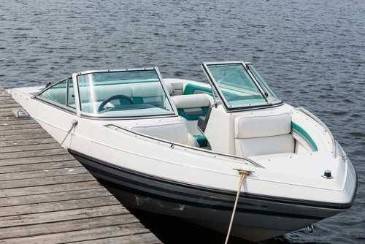
Florida’s geographical location exposes it to various weather hazards that can have a profound impact on boating safety. The state experiences frequent thunderstorms, tropical storms, and hurricanes, particularly during the Atlantic hurricane season from June to November. The combination of warm waters and atmospheric conditions in Florida often leads to the development of severe weather patterns.
Impact of Weather on Boating Accidents
2.1 Visibility Issues
Poor visibility caused by fog, heavy rain, or stormy conditions can significantly impair a boater’s ability to navigate safely. Reduced visibility makes it challenging to identify potential hazards such as other vessels, floating debris, or shallow waters. Consequently, boaters may collide with objects or encounter difficulties maneuvering their vessels, leading to accidents.
2.2 High Winds and Rough Seas
Strong winds are another weather-related factor that can pose serious risks for boaters. Gusty winds can create large waves and rough sea conditions, making it harder to control the boat’s movement and stability. This can result in capsizing, swamping, or even sinking of boats, putting occupants in grave danger.
2.3 Lightning Strikes
Florida is renowned as the “lightning capital of the United States” due to its high frequency of thunderstorms. Lightning strikes are a significant concern for boaters, as being out on the water makes them more vulnerable to such natural phenomena. A direct lightning strike can cause severe injuries or even be fatal to boaters, in addition to damaging electronic equipment onboard.
Safety Precautions and Best Practices
3.1 Monitor Weather Forecasts
Before setting sail, it is essential to check the latest weather forecasts and understand the predicted conditions for the duration of your trip. Several reliable sources provide up-to-date weather information specifically tailored for boaters, including the National Weather Service and local marine forecast centers. Avoid venturing out if adverse weather conditions are expected or if a storm is approaching.
3.2 Carry Safety Equipment
Ensure that your boat is equipped with appropriate safety gear, including life jackets, flares, fire extinguishers, and a reliable communication device. These items can prove invaluable during an emergency situation or when unexpected weather conditions arise.
3.3 Develop Seamanship Skills and Knowledge
Enhancing your seamanship skills and knowledge can significantly reduce the risks associated with boating accidents. Enrolling in boating safety courses, obtaining a boating license, and learning about navigation, weather patterns, and emergency procedures will make you a more confident and responsible boater.
3.4 Seek Shelter and Stay Informed
If you find yourself on the water when adverse weather approaches, seek shelter immediately. Head toward the nearest safe harbor or a designated storm shelter. Staying informed about weather updates through marine radios, smartphone apps, or onboard weather instruments can help you make informed decisions and protect yourself and your passengers.
By being aware of weather hazards, monitoring forecasts, taking necessary precautions, and enhancing your boating knowledge, you can mitigate the risks associated with adverse weather conditions. Remember, your safety and the safety of your passengers should always be the top priority when embarking on a boating adventure in the Sunshine State.
Additionally, it is crucial to stay informed about any weather alerts or warnings issued by the authorities. Pay attention to storm watches or warnings, tropical storm advisories, and hurricane updates. Florida has a robust weather monitoring system in place, and staying informed can help you make timely decisions to protect yourself and your vessel.
Moreover, it’s essential to use common sense and good judgment. If the weather conditions seem questionable or if you’re uncertain about the safety of your boating excursion, it’s best to postpone or cancel your plans. Remember, no boating trip is worth compromising your safety.
Lastly, promoting a culture of safety among the boating community is vital. Encourage fellow boaters to prioritize weather awareness and responsible boating practices. Share information, resources, and experiences to educate and create awareness about the role of weather in boating accidents.
Understanding the role of weather in Florida boating accidents is crucial for ensuring a safe and enjoyable boating experience. By respecting weather conditions, staying informed, taking necessary precautions, and enhancing your boating knowledge, you can reduce the risks and make the most of your time on the water in the beautiful state of Florida. Remember, responsible boating is the key to keeping yourself, your passengers, and other boaters safe.
At Serrano Law, we understand the complexities and challenges associated with Florida boating accidents, particularly those influenced by weather conditions. With our expertise in maritime law and personal injury cases, we can provide valuable assistance to individuals affected by boating accidents caused or exacerbated by adverse weather. Here’s how we can help:
Legal Guidance and Representation:
If you or a loved one has been involved in a boating accident in Florida where weather conditions played a significant role, our experienced attorneys can provide the necessary legal guidance and representation. We will thoroughly investigate the circumstances of the accident, assess liability, and determine if negligence or failure to account for weather conditions contributed to the incident.
Expertise in Maritime Law:
Boating accidents involving weather-related factors require a nuanced understanding of maritime law. At Serrano Law, we specialize in maritime law and have a deep understanding of the legal intricacies involved in these types of cases. We will leverage our expertise to build a strong case on your behalf and pursue the compensation you deserve.
Determining Liability:
In boating accidents influenced by adverse weather, determining liability can be complex. Our skilled attorneys will examine all relevant factors, including the weather conditions at the time of the accident, the actions of the boat operator, and any failure to adhere to safety guidelines or regulations. We will work diligently to establish liability and hold the responsible parties accountable for their actions.
Evidence Collection and Documentation:
To build a strong case, it’s essential to gather and preserve evidence effectively. We will work with investigators, experts, and relevant authorities to collect crucial evidence, such as weather reports, witness testimonies, accident reconstructions, and any available video or photographic evidence. Thorough documentation of the weather conditions and their impact on the accident is critical to support your claim.
Negotiations and Settlements:
Our goal is to secure the maximum compensation possible for our clients. We have extensive experience in negotiating with insurance companies and opposing parties to reach fair settlements. We will advocate on your behalf, considering the impact of weather conditions on the accident and any resulting injuries, property damage, medical expenses, lost wages, or emotional distress.
Trial Advocacy:
If a fair settlement cannot be reached through negotiations, we are prepared to take your case to trial. Our trial lawyers have a proven track record of success in the courtroom and will passionately advocate for your rights, presenting a compelling case that highlights the role of weather in the boating accident and the subsequent damages you have suffered.
What to do if you were injured in a boating accident in Florida
Boating is a popular recreational activity in Florida, with its miles of coastlines, lakes, and rivers. However, accidents can happen, and boating accidents can result in serious injuries. If you were injured in a boating accident in Florida, it’s important to know what steps to take to protect your health and your legal rights. In this blog post, we’ll discuss what you should do if you find yourself in this situation.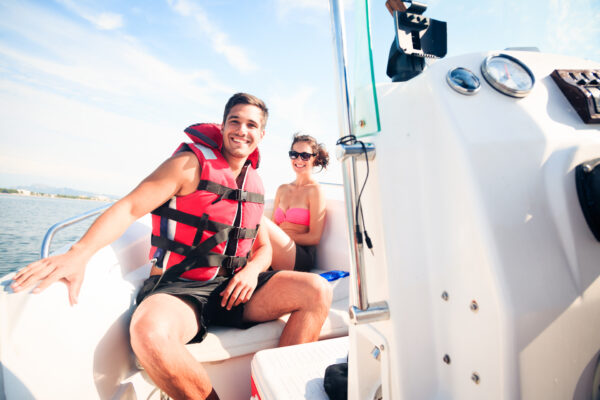
Seek Medical Attention
The first and most important step after a boating accident is to seek medical attention for any injuries you or anyone else on the boat may have sustained. Even if you feel fine, it’s a good idea to get checked out by a medical professional, as some injuries may not be immediately apparent. Be sure to keep a record of any medical treatment you receive, including the names of the healthcare providers and the dates of the visits.
Report the Accident
If someone is injured or killed in a boating accident, the operator of the vessel is required by law to report the accident to the Florida Fish and Wildlife Conservation Commission (FWC) within 48 hours. If the accident resulted in property damage of more than $2,000 or if anyone was injured, you should also report the accident to your insurance company.
Document the Scene
If you’re able to, take pictures of the scene of the accident, including any damage to the boat and any injuries sustained by you or anyone else. You should also get contact information from any witnesses to the accident, as their testimony may be valuable later on.
Contact a Personal Injury Attorney
If you’ve been injured in a boating accident, it’s a good idea to consult with a personal injury attorney who has experience handling boating accident cases in Florida. An attorney can help you navigate the complex legal process and ensure that your rights are protected.
Know Your Rights
If you’ve been injured in a boating accident, you may be entitled to compensation for your injuries, medical expenses, lost wages, and other damages. Your attorney can help you determine what your legal options are and what types of compensation you may be entitled to.
Be Mindful of Statutes of Limitations
It’s important to be aware of the statutes of limitations that apply to personal injury cases in Florida. In general, you have four years from the date of the accident to file a lawsuit for personal injury or property damage resulting from the boating accident. However, there may be exceptions to this rule depending on the circumstances of your case. It’s crucial to speak with an experienced personal injury attorney as soon as possible to ensure that you don’t miss any important deadlines.
Cooperate with Investigations
The FWC will conduct an investigation of the accident to determine its cause and who is at fault. It’s important to cooperate with their investigation and provide any information that they request. However, it’s also important to remember that anything you say to the authorities can be used against you later on, so it’s a good idea to consult with an attorney before speaking with the investigators.
Follow Your Doctor’s Orders
If you’ve been injured in a boating accident, it’s important to follow your doctor’s orders and attend all scheduled medical appointments. This will not only help you recover more quickly, but it will also provide documentation of your injuries and the extent of your damages. If you fail to follow your doctor’s orders, the other side may argue that your injuries aren’t as severe as you claim.
Don’t Accept a Settlement without Consulting an Attorney
If the other party’s insurance company offers you a settlement, don’t accept it without first consulting with an attorney. Insurance companies often try to settle cases quickly and for less than they’re worth, so it’s important to have an attorney review any settlement offers to ensure that you’re being fairly compensated for your damages.
Be Patient
Boating accident cases can be complex and may take some time to resolve. It’s important to be patient and not rush into accepting a settlement or making any decisions before you have all the facts. Your attorney can help guide you through the process and ensure that you’re making informed decisions every step of the way.
Being injured in a boating accident can be a challenging and stressful experience. However, by following these steps and working with an experienced personal injury attorney, you can protect your legal rights and get the compensation you deserve. Remember to seek medical attention, document the scene, cooperate with investigations, follow your doctor’s orders, and be patient. With the right help and guidance, you can move forward and recover from your injuries.
Serrano Law is a law firm that specializes in personal injury cases, including boating accidents. Our experienced attorneys can help you navigate the complex legal process and ensure that your rights are protected. Here’s how we can help:
Free Consultation: We offer a free initial consultation to discuss your case and determine whether you have a viable claim. During this consultation, we’ll ask you questions about the accident, your injuries, and any medical treatment you’ve received. We’ll also explain the legal process and what types of compensation you may be entitled to.
Investigation: We’ll conduct a thorough investigation of the accident to determine its cause and who is at fault. This may involve reviewing police reports, interviewing witnesses, and consulting with experts in boating safety and accident reconstruction.
Documentation: We’ll help you document your injuries, medical expenses, lost wages, and other damages resulting from the accident. This documentation will be critical in proving the extent of your damages and the compensation you’re entitled to.
Negotiation: We’ll negotiate with the other side’s insurance company to try to reach a fair settlement. If a settlement can’t be reached, we’ll be prepared to take your case to trial.
Advocacy: We’ll be your advocate throughout the entire process, representing your best interests and fighting for the compensation you deserve. We’ll keep you informed every step of the way and answer any questions you have about your case.
At Serrano Law, we understand the physical, emotional, and financial toll that a boating accident can take on you and your family. That’s why we’re dedicated to providing compassionate, effective legal representation to help you recover from your injuries and move forward with your life. If you’ve been injured in a boating accident in Florida, contact Serrano Law today for a free consultation.
What is The Leading Cause of Death in Boating Accidents in Florida?
Drowning is the leading cause of death in boating accidents in Florida, as reported by the Florida Fish and Wildlife Conservation Commission (FWC) and the U.S. Coast Guard. With Florida’s abundant recreational boating opportunities, drowning-related fatalities are alarmingly high. Several factors contribute to this unfortunate statistic.
The lack of life jackets plays a significant role. In 2022, 81% of drowning victims in boating accidents were not wearing life jackets. These safety devices are crucial as they keep individuals afloat even if they are unconscious or injured, greatly increasing their chances of survival.
Alcohol use is another major factor. Consuming alcohol impairs judgment, balance, and coordination, all of which are essential for safe boating. Consequently, alcohol is a leading contributing factor in many boating accidents that result in drowning.
Inexperienced operators also contribute to the high incidence of drowning. Many boat operators lack the necessary training and experience to handle emergency situations. This inexperience can lead to poor decision-making and an inability to respond effectively to sudden changes or hazards.
Adverse weather conditions in Florida can change rapidly, with sudden storms and high winds creating dangerous conditions on the water. Boaters who are unprepared for these changes may find themselves in perilous situations.
Overloading and improper loading of boats can cause instability and capsize, leading to occupants being thrown into the water. This further increases the risk of drowning in boating accidents.
What is Drowning?
Drowning is defined by the World Health Organization (WHO) as the process of experiencing respiratory impairment from submersion or immersion in liquid. It can result in three outcomes: death, morbidity (injury or illness), or no morbidity.
How Drowning Occurs
Drowning typically occurs in several stages. It begins with the initial panic and breath-holding when a person’s airway is submerged. The initial reaction is to hold their breath, and panic sets in as they realize they cannot breathe. This is followed by a struggle for air, during which the person may thrash in the water, trying to keep their head above the surface to breathe. This stage is often characterized by frantic and uncoordinated movements. As the person becomes more fatigued and can no longer hold their breath, they may involuntarily inhale water, leading to aspiration where water enters the lungs. Finally, the lack of oxygen, known as hypoxia, eventually causes the person to lose consciousness. Once unconscious, the individual is at high risk of death if not rescued promptly.
Case Results
Why Drowning is Deadly
Drowning is a deadly hazard due to several critical factors. The primary and most immediate threat is hypoxia. When water enters the lungs, it obstructs the flow of oxygen into the bloodstream, causing a significant drop in oxygen levels. This lack of oxygen, or hypoxia, can damage vital organs, particularly the brain and heart, within minutes and potentially lead to irreversible harm.
Additionally, aspiration, or inhaling water, can result in pulmonary edema. This condition involves the accumulation of fluid in the lungs, which further impedes gas exchange. Pulmonary edema can escalate into acute respiratory distress syndrome (ARDS), a severe and potentially life-threatening complication.
In some instances, water entering the airway triggers a reflex spasm of the vocal cords, known as laryngospasm. This spasm temporarily seals the airway to prevent more water from entering, but it also blocks air from getting in. Although the spasm usually subsides after a short time, the initial blockage can worsen hypoxia.
Cardiac complications are another serious concern in drowning cases. Hypoxia and the body’s stress response can disrupt the heart’s electrical activity, potentially leading to irregular heartbeats or cardiac arrest.
Even after a person is rescued and seems to recover, there is a risk of secondary drowning. This occurs when water remaining in the lungs causes inflammation or infection, leading to breathing difficulties and potentially fatal complications hours after the initial drowning incident.
Understanding Settlements in Boat Accident Cases
Settling a boat accident case outside of court means that both sides involved in the accident agree on a fair solution without going to trial. Often, insurance companies or lawyers work out a settlement amount that both the injured party and the person or company at fault can accept. Settlements are common in boat accident cases because they save time and money for everyone involved. The process generally requires both sides to negotiate terms, which includes agreeing on an amount that will cover medical bills, lost wages, pain and suffering, and other damages.
One benefit of settling a case is that it can lead to a faster resolution. Trials can sometimes drag on for months or even years, especially when there are disputes about who is at fault or how much compensation is fair. By settling out of court, individuals can often receive the funds they need sooner. Settlements can also be less stressful because they avoid the tension that comes with a court battle.
Another important reason many people prefer settlements is the predictability of the outcome. Going to court can bring risks because a judge or jury may not decide in favor of the injured party. In contrast, a settlement provides a guaranteed outcome where both sides have agreed to the terms. For boat accident victims, this certainty can offer peace of mind and financial stability. However, settlements may not always provide the maximum compensation possible, as insurance companies typically aim to minimize the amount they pay.
Considering Going to Court for a Boat Accident Case
Going to court is an option for those involved in a boat accident who feel that a fair settlement cannot be reached outside of court. In these cases, a trial allows the injured party to present their evidence to a judge or jury, who then decides the outcome. When going to court, each side has the chance to explain its side of the story. The injured party’s legal team can show evidence to support the claim, which may include details about medical expenses, the extent of injuries, or the cost of property damage.
Choosing to go to court may be necessary if the other side refuses to offer a fair settlement or if there is disagreement about who was responsible for the accident. During a trial, the judge or jury will carefully examine all the evidence before making a final decision. One benefit of going to court is the chance to receive a higher compensation amount. Sometimes, courts award more money to victims to cover not only medical expenses and lost wages but also to account for pain, suffering, and other long-term impacts.
However, going to court can also come with risks and drawbacks. Trials are usually longer and costlier than settlements, with legal fees and court expenses adding up over time. Additionally, court cases are public, which means details about the accident, injuries, and personal life may be disclosed. This lack of privacy can be uncomfortable for some individuals. It is also important to remember that going to court does not guarantee a positive outcome. Even with strong evidence, there is always a chance that the judge or jury may rule against the injured party.
Florida’s Top Boating Accident Hotspots
Boating is one of the most popular recreational activities in Florida, with its miles of coastline, waterways, and year-round warm weather. Unfortunately, with so many boats on the water, accidents are bound to happen. In this blog post, we will explore some of Florida’s top boating accident hotspots and provide some tips to stay safe on the water.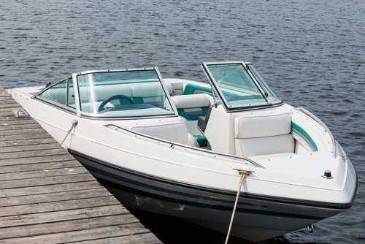
Miami-Dade County
Miami-Dade County is the most populous county in Florida and home to some of the busiest waterways in the state. Biscayne Bay and the Miami River are both popular boating destinations, but they can also be dangerous due to their heavy boat traffic. Make sure to stay alert and follow all boating regulations when navigating these waters.
Monroe County
Monroe County includes the Florida Keys, which are a popular boating destination for tourists and locals alike. The area is known for its beautiful coral reefs, but these can also be hazardous to boaters who are not familiar with the area. In addition, the strong currents and shallow waters around the Keys can be challenging to navigate. Be sure to have a map and stay aware of your surroundings at all times.
Pinellas County
Located on the Gulf of Mexico, Pinellas County is home to several popular boating destinations, including Clearwater Beach and St. Petersburg. Unfortunately, the area is also known for its frequent thunderstorms, which can create dangerous boating conditions. Be sure to check the weather forecast before heading out and always wear a life jacket.
Palm Beach County
Palm Beach County is located on the east coast of Florida and is home to several popular boating destinations, including Palm Beach and Lake Worth. However, the area is also known for its strong ocean currents, which can be dangerous for inexperienced boaters. Make sure to have a plan in case of an emergency and always stay aware of your surroundings.
Lee County
Lee County is located on the southwest coast of Florida and includes popular boating destinations such as Fort Myers Beach and Sanibel Island. However, the area is also known for its shallow waters, which can be hazardous for boaters who are not familiar with the area. Be sure to have a map and stay within marked channels to avoid running aground.
Broward County
Broward County is located on the southeast coast of Florida and includes popular boating destinations such as Fort Lauderdale and Hollywood. The area is known for its heavy boat traffic, which can create hazardous conditions. Boaters should be aware of their surroundings, follow all boating regulations, and keep a safe distance from other vessels.
Collier County
Collier County is located on the southwest coast of Florida and includes popular boating destinations such as Naples and Marco Island. The area is known for its strong currents and shallow waters, which can be challenging to navigate. Boaters should have a map, stay within marked channels, and be aware of the tide levels.
Sarasota County
Sarasota County is located on the Gulf of Mexico and includes popular boating destinations such as Siesta Key and Venice. The area is known for its strong winds, which can create hazardous boating conditions. Boaters should check the weather forecast before heading out and always wear a life jacket.
Duval County
Duval County is located on the northeast coast of Florida and includes popular boating destinations such as Jacksonville and Amelia Island. The area is known for its busy waterways and large commercial vessels, which can create hazardous conditions for recreational boaters. Boaters should stay alert, follow all boating regulations, and keep a safe distance from other vessels.
Hillsborough County
Hillsborough County is located on the west coast of Florida and includes popular boating destinations such as Tampa Bay and Apollo Beach. The area is known for its frequent thunderstorms, which can create hazardous boating conditions. Boaters should check the weather forecast before heading out and always have a plan in case of an emergency.
Boating in Florida can be a fun and exciting experience, but it is important to be aware of the potential hazards and take precautions to stay safe on the water. By following all boating regulations, staying alert, and being prepared for emergencies, you can help ensure a safe and enjoyable boating experience in Florida’s top boating accident hotspots.
At Serrano Law, we specialize in personal injury cases, including boating accidents in Florida’s top boating accident hotspots. Our experienced attorneys have a deep understanding of Florida’s boating laws and regulations, and we are committed to providing our clients with the legal support they need to pursue the compensation they deserve.
If you have been injured in a boating accident, we can help. We will work closely with you to gather evidence, investigate the accident, and determine who was at fault. We will then use this information to build a strong case on your behalf and negotiate with insurance companies to ensure that you receive the compensation you deserve.
We also provide guidance on boating safety to help prevent accidents from occurring in the first place. We encourage all boaters to take precautions, such as wearing life jackets, following all boating regulations, and staying alert while on the water.
If you have been injured in a boating accident or have questions about boating safety, we can provide the legal guidance and support you need. Our team is dedicated to helping clients navigate the complexities of boating accident cases and will work tirelessly to ensure that you receive the compensation you deserve.
What is a No Wake Zone?
A No Wake Zone refers to a specific section of a waterway where regulations require boat operators to travel at a minimal speed, producing the smallest possible wake or turbulence behind their vessels. These zones are strategically placed in various parts of waterways, often in locations that experience heavy boat traffic, have narrow passages, are close to residential neighborhoods, near marinas, or within environmentally sensitive areas like wetlands or conservation sites.
The primary goal of establishing a no wake zone is to ensure safety on the water for all users, ranging from large vessels to smaller recreational boats and even swimmers. By reducing the boat’s speed, the risk of accidents and collisions is significantly minimized, creating a safer environment for everyone. Additionally, these zones help in protecting the structural integrity of waterfront properties and community facilities from the potential damage caused by high waves and turbulent wakes.
Moreover, no wake zones play a crucial role in environmental conservation. They help in preserving the natural habitat of aquatic life by preventing erosion, reducing sediment disturbance, and safeguarding nesting grounds for birds and marine species. Areas such as seagrass beds, mangrove forests, and coral reefs benefit from these regulations, as they are less disturbed by the physical impact of boat traffic.
Enforcement of no wake zones is typically signaled through clear signage along the waterway, alerting boaters to the need to decrease speed. Compliance is not only a matter of legal obligation but also a reflection of boaters’ respect for the safety and environmental guidelines of the waterways. Violating these regulations can result in fines and penalties, emphasizing the importance of adhering to the speed limits set within these zones.
In essence, no wake zones are a critical aspect of maritime regulation, designed to balance the enjoyment of boating with the necessity of safety, environmental protection, and community well-being. They require boaters to operate at idle or no-wake speed to prevent wake damage, protect the environment, and ensure a safe, enjoyable experience for all waterway users.
Multi-Collision Car AccidentClient Testimonial
How do No Wake Zone Regulations Impact Liability?
No wake zone regulations are a critical element in assessing liability for boating accidents, as they define specific areas where boat operators must significantly reduce their speed to minimize the wake produced by their vessels. These regulations aim to protect other vessels, swimmers, and waterfront properties from the potential hazards caused by large wakes. Understanding the implications of these rules is essential in determining who is at fault in boating mishaps.
In the context of no wake zones, liability is influenced by various factors, including the boat operator’s compliance with the regulations. Operators are legally required to observe no wake zone signs and reduce their speed accordingly. Ignoring these regulations can lead to a breach of duty, particularly if an accident or property damage occurs as a result of the excessive wake. Therefore, adherence to no wake rules is a primary consideration in liability cases.
The proximity of the boat to other vessels and waterfront properties is another crucial factor in determining liability. Boaters navigating through no wake zones are expected to exercise increased caution to avoid collisions and damage to structures or natural habitats along the shoreline. The intention behind the reduced speed requirement in these zones is to decrease the likelihood of accidents and minimize potential harm to the environment and property. Non-compliance with these speed limits not only heightens the risk of accidents but can also lead to significant liability for any damages incurred.
In situations where a boating accident occurs within or near a no wake zone, the concept of contributory negligence often comes into play. This legal principle allows for the apportionment of fault among multiple parties involved in the accident, based on their respective contributions to the incident. For instance, if one boat operator disregards the no wake speed limit while another boat fails to give way appropriately, both operators may be found partially liable for the collision and its consequences.
Mitigating factors can play a role in the assessment of liability in no wake zone-related boating accidents. These factors include adverse weather conditions, navigational challenges, or mechanical failures that may have contributed to the accident. The courts may also consider the efforts made by boat operators to mitigate risks and prevent accidents, such as using horns or signals to communicate with other vessels.
Understanding and complying with no wake zone laws are not only legal obligations but are also integral to promoting safety in boating practices. Boat operators are urged to remain vigilant and cautious when navigating through these restricted areas to prevent accidents and safeguard the well-being of passengers, other boaters, and waterfront communities. The impact of no wake zone regulations on liability in boating accidents underscores the importance of these rules in maintaining safety and order on the waterways.
Understanding Carbon Monoxide Poisoning:
Carbon monoxide is a colorless, odorless, and tasteless gas that is produced as a byproduct of incomplete combustion. Common sources of CO on boats include engines, generators, cooking appliances, and exhaust leaks. When inhaled, CO quickly binds with hemoglobin in the blood, reducing its ability to carry oxygen to vital organs. This lack of oxygen can lead to severe health complications and even death.
The Unique Risks on Boats:
Boats present unique challenges when it comes to carbon monoxide poisoning. The close quarters, limited ventilation, and potential for exhaust leaks make boats particularly susceptible to high levels of CO. Additionally, activities like swimming near the boat, waterskiing, or using a swim platform can place individuals at an increased risk, as they may unknowingly be exposed to concentrated levels of CO.
Signs and Symptoms:
Recognizing the signs and symptoms of carbon monoxide poisoning is crucial for early detection and prompt action. Common indicators include headaches, dizziness, nausea, confusion, fatigue, and flu-like symptoms. As these signs can be easily mistaken for seasickness or general fatigue, it’s important to be vigilant and aware of the potential presence of CO.
Preventing Carbon Monoxide Poisoning on Boats:
Install Carbon Monoxide Detectors: Just like in your home, installing CO detectors on your boat is essential. These devices can detect the presence of CO and emit an audible alarm, providing you with an early warning in case of a leak.
Ensure Proper Ventilation: Proper ventilation is crucial for maintaining a safe environment on your boat. Ensure that all exhaust systems are functioning correctly, and regularly inspect and clean the exhaust outlets to prevent blockages.
Educate Yourself and Passengers: Make sure everyone on board is aware of the dangers of carbon monoxide poisoning and understands the symptoms. Teach them to recognize the signs and take immediate action if they suspect a CO leak.
Avoid Dangerous Practices: Never swim or allow passengers to swim near the exhaust outlets or in areas where exhaust fumes may accumulate. Be cautious when using watercraft with rear-facing or under-platform exhausts.
Perform Regular Maintenance: Regularly maintain and service your boat’s engines, generators, and appliances to minimize the risk of CO leaks. Check for exhaust leaks and promptly address any issues that arise.
Be Mindful of Anchor and Swim Platform Placement: When anchoring your boat, be cautious of where you drop the anchor and the proximity to the exhaust outlets. A strong current or wind can cause the exhaust fumes to drift toward the boat or swim platform. Ensure that the anchor is placed in an area that allows for proper ventilation.
Never Block Vents or Exhaust Outlets: It’s important to keep all vents and exhaust outlets clear of any obstructions. Avoid placing objects or equipment near these areas that could potentially block the flow of exhaust gases. Maintaining unobstructed airflow is vital for preventing the accumulation of carbon monoxide.
Educate Yourself on Boat-Specific CO Safety Measures: Different types of boats may have specific safety measures to mitigate the risks of carbon monoxide poisoning. Consult your boat’s manufacturer or owner’s manual to understand any boat-specific guidelines or recommendations.
Be Cautious with Portable Generators: If you use a portable generator on your boat, exercise caution. Place the generator on the dock or a safe distance away from the boat to prevent CO fumes from entering the cabin or cockpit. Follow the manufacturer’s instructions for proper ventilation and safe usage.
Consider CO-Free Alternatives: As technology advances, there are now alternatives to traditional combustion engines and generators that eliminate the risk of carbon monoxide poisoning. Electric-powered boats or appliances are becoming more prevalent and can significantly reduce the danger associated with CO.
Stay Informed about Weather Conditions: Be aware of weather conditions that can potentially contribute to the accumulation of CO. Calm, windless days or areas with low air circulation can increase the concentration of CO fumes around your boat. Stay informed and adjust your boating plans accordingly.
Enjoying time on a boat should be a pleasurable and safe experience. By understanding the dangers of carbon monoxide poisoning and implementing essential safety measures, you can significantly reduce the risk of exposure to this deadly gas. Remember to install CO detectors, ensure proper ventilation, educate your passengers, and prioritize regular maintenance. By practicing these safety tips and staying vigilant, you can create a safer boating environment for yourself, your loved ones, and everyone who enjoys the water. Stay informed, stay safe, and have a wonderful time on the water!
At Serrano Law, we understand the serious implications of carbon monoxide poisoning on boats and are committed to assisting individuals affected by such cases. Our dedicated team of attorneys is equipped with the knowledge and experience necessary to provide comprehensive legal support. Here’s how we can help:
Legal Consultation: We offer personalized consultations to discuss the specifics of your carbon monoxide poisoning case on a boat. We will listen attentively to your situation, provide expert advice, and guide you through the legal process.
Investigation and Evidence Gathering: As part of our services, we will conduct a thorough investigation to gather essential evidence. Our team will diligently examine maintenance records, collect witness testimonies, analyze boat specifications, and consult with experts in order to establish liability and build a strong case.
Liability Assessment: With the gathered evidence, we will assess liability in your carbon monoxide poisoning case. Our experienced attorneys will determine whether boat manufacturers, operators, maintenance personnel, or other parties can be held responsible for the incident. We will provide a clear understanding of your legal rights and options.
Negotiation and Settlement: Our team will skillfully negotiate with insurance companies, responsible parties, or their legal representatives on your behalf. We will strive to secure fair compensation for your medical expenses, pain and suffering, lost wages, and other damages resulting from the incident.
Legal Representation: If a fair settlement cannot be reached, we will provide strong legal representation throughout the litigation process. Our attorneys will zealously advocate for your rights in court, presenting your case effectively and supporting you every step of the way.
Industry Knowledge and Expertise: With our extensive knowledge and experience in personal injury and maritime law, we are well-versed in the intricacies of carbon monoxide poisoning cases on boats. We stay updated on relevant laws, regulations, and industry standards, enabling us to provide you with the highest level of legal representation.
At Serrano Law, we prioritize the well-being and best interests of our clients. If you believe you have a carbon monoxide poisoning case related to boating, we are here to offer our guidance, support, and unwavering commitment to achieving a fair resolution. Contact us today to schedule a consultation and take the first step toward seeking justice.
Boat Accident Injury Tips
Were you seriously injured while out on the water and have questions? Check out our boat accident injury tips, then give us a call today.
Cost of a Lawyer
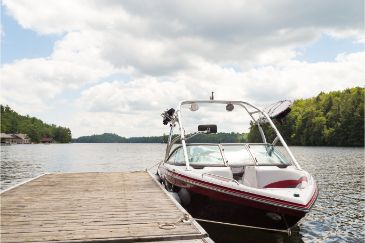 We handle these cases on a contingency fee, which means our attorney’s fee amounts to a percentage of the recovery, depending on what stage the case is in.
We handle these cases on a contingency fee, which means our attorney’s fee amounts to a percentage of the recovery, depending on what stage the case is in.
As far as costs, there are several costs involved. If you have to file a lawsuit, there are filing fees. There are service process fees. The way we handle these claims is if we accept the case, we will advance the costs. That way you’re not coming out of pocket in a time that is usually difficult where you’re trying to get through a situation where you’ve been injured. Give us a call at our Tampa office.
Choosing The Right Attorney
Hiring an attorney is a very important decision, especially when you need someone to navigate through what’s usually a difficult time after you sustain an injury. It goes without saying, if it’s a boating accident case or an auto accident case, you need to communicate with your attorney so you can develop the trust that is necessary for you to be able to successfully prosecute your claim. At the initial stage during your consultation, you want to see your attorney. You want to be able to ask all the questions, and you want them to be able to talk to you about their opinion regarding the evaluation of your case. It is impossible to evaluate a case fully at the initial consult.
Throughout the journey and during the process, which sometimes can be a long arduous one, you need to have constant communication with your attorney. A client recently asked us how to hire the best boating accident attorney. It’s the one that’s going to talk to you and the one that has experience handling those claims.
Boat Accidents vs. Other Accident Cases
We had a client that was involved in a boat accident in the Tampa Bay area. They asked a very good question during the phone consultation: “Are there damages that I can recoup in a case like this?” He had been injured from the negligence of another boating driver. Are the damages different from a regular auto accident personal injury case? The answer is no. It’s an injury case.
Sometimes, there are different issues that are involved with regard to liability and responsibility, but ultimately the damages that you recoup are going to be damages for past medical bills, the medical bills you’re reasonably certain to incur in the future, and damages for pain and suffering. Contact a lawyer who is experienced in handling boating accident cases.
Were you or a loved one seriously injured while out on the water and have questions about our boat accident injury tips? Contact experienced Florida boat accident lawyers at Serrano Law today for a free consultation and case evaluation.
Serving clients throughout Tampa Bay and Hillsborough County
Like Us on Facebook
5 Boat Accident Facts
Have you or a loved one been injured from a boat accident? Check out these 5 boat accident facts, then give our Florida attorneys a call today.
1) Cost of a Boat Accident Lawyer
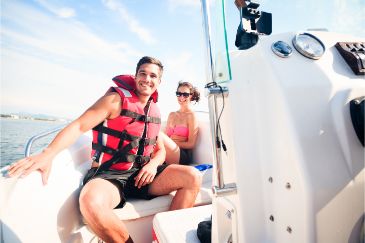 We had a client the other day in Tampa ask us if there were any upfront costs that were necessary to hire a lawyer to handle a boat accident claim. The answer is no. We handle these cases on a contingency fee, which means our attorney’s fee amounts to a percentage of the recovery, depending on what stage the case is in.
We had a client the other day in Tampa ask us if there were any upfront costs that were necessary to hire a lawyer to handle a boat accident claim. The answer is no. We handle these cases on a contingency fee, which means our attorney’s fee amounts to a percentage of the recovery, depending on what stage the case is in.
As far as costs, there are several costs involved. If you have to file a lawsuit, there are filing fees. There are service process fees. The way we handle these claims is if we accept the case, we will advance the costs. That way you’re not coming out of pocket in a time that is usually difficult where you’re trying to get through a situation where you’ve been injured. Give us a call at our Tampa office.
2) Choosing The Right Boat Accident Attorney
Hiring an attorney is a very important decision, especially when you need someone to navigate through what’s usually a difficult time after you sustain an injury. It goes without saying, if it’s a boating accident case or an auto accident case, you need to communicate with your attorney so you can develop the trust that is necessary for you to be able to successfully prosecute your claim. At the initial stage during your consultation, you want to see your attorney. You want to be able to ask all the questions, and you want them to be able to talk to you about their opinion regarding the evaluation of your case. It is impossible to evaluate a case fully at the initial consult.
Throughout the journey and during the process, which sometimes can be a long arduous one, you need to have constant communication with your attorney. A client recently asked us how to hire the best boating accident attorney. It’s the one that’s going to talk to you and the one that has experience handling those claims. Give us a call and we’ll talk to you about your boating accident claim.
3) How Boat Accidents Differ From Other Accident Cases
We had a client that was involved in a boat accident in the Tampa Bay area. They asked a very good question during the phone consultation: “Are there damages that I can recoup in a case like this?” He had been injured from the negligence of another boating driver. Are the damages different from a regular auto accident personal injury case? The answer is no. It’s an injury case.
Sometimes, there are different issues that are involved with regard to liability and responsibility, but ultimately the damages that you recoup are going to be damages for past medical bills, the medical bills you’re reasonably certain to incur in the future, and damages for pain and suffering. Contact a lawyer who is experienced in handling boating accident cases. We can give you a free evaluation and take a look at your case. Give us a call in Tampa today.
4) Damages Available in a Boat Accident Case
If you are injured in a boating accident in Florida, there are various damages and elements involved in a claim. I had a client recently in Tampa ask me about what damages they could recover since they had been injured as a result of someone else’s fault in a boating accident. The damages are similar to any injury claim. You’re going to have damages for your past medical bills, the future medical bills you’re reasonably certain to incur in the future, and damages for pain and suffering in the past and the future, sometimes even lost wages, if it applies. You need a lawyer to be able to talk to you at that initial consultation to effectively evaluate your claim and guide you through a difficult process. If you have been injured in a boating accident, give us a call at our Tampa office.
5) Liability For a Boat Accident Injury
Boating accident injuries are tricky. We had a client recently who was injured in a boating accident in the Tampa Bay area. They asked at the initial consult who they could pursue for damages they had sustained? His damages were medical bills. His medical bills had eclipsed $50,000.
It turned out that there was an individual riding the other boat, and that person was negligent. They were driving the boat very fast, at very high speeds, and smashed into my client’s boat. He could pursue that driver as well as the owner of the boat. The owner of the boat would be vicariously liable or responsible for the actions of the permissible boating driver. Boating accident cases, like most cases, have to be navigated in a certain way. You need an experienced lawyer by your side who is willing to take your case to trial. Give us a call.
Were you or a loved one seriously injured while out on the water and have questions about these 5 boat accident facts? Contact experienced Florida boat accident lawyers at Serrano Law today for a free consultation and case evaluation.
Serving clients throughout Tampa Bay and Hillsborough County
Like Us on Facebook
Why Timely Reporting Matters in Boat Accident Cases
Florida’s waters are among the busiest in the nation, attracting countless recreational boaters, fishermen, and tourists each year. Unfortunately, this activity increases the likelihood of accidents. When a boat accident occurs, reporting it promptly is critical for many reasons. One of the most important is compliance with Florida law, which requires that certain boating accidents be reported to the appropriate authorities. For example, any accident resulting in a fatality, serious injury, or significant property damage must be reported without delay. Failing to do so could result in legal consequences and complications with your case.
Timely reporting also helps preserve evidence and ensures that the facts surrounding the incident are fresh. Memories fade quickly, and physical evidence can be altered by weather or time. By reporting the accident promptly, you create a clear record of what happened, which can be crucial if you need to pursue a legal claim for injuries or damages.
Establishing Liability in Florida Boat Accidents
In Florida, boat accidents can involve a variety of parties, from other boaters to rental companies, tour operators, or even manufacturers of defective equipment. Determining who is responsible for the accident often requires a detailed investigation. Timely reporting allows investigators to gather necessary evidence and speak to witnesses while their recollections are still vivid.
Establishing liability in a boat accident case can be challenging. For example, it may involve proving that another boater was negligent by speeding, operating under the influence, or failing to follow safety regulations. Alternatively, it might involve showing that a rental company failed to maintain its vessels properly. Without a prompt report, these crucial details may be harder to prove, weakening your case.
Protecting Your Legal Rights After a Boat Accident
After a boat accident, it is natural to feel unsure about what steps to take next. Reporting the accident promptly helps ensure that your legal rights are protected. It demonstrates that you took the incident seriously and complied with the requirements set forth by Florida law. This is particularly important if the other party involved attempts to deny responsibility or claim that your injuries were not related to the accident.
In addition to filing an official report, seeking medical attention immediately after the accident is essential. Even if you feel fine at first, some injuries may not show symptoms right away. Prompt medical care not only protects your health but also provides documentation of your injuries, which can be critical in building a strong case.
How Timely Reporting Can Strengthen Your Case
When pursuing compensation for injuries or damages after a boat accident, having a clear and detailed record of what happened can make all the difference. Timely reporting helps establish a timeline of events, providing valuable information that can support your claims. It also demonstrates your commitment to resolving the matter responsibly, which can influence insurance companies and other parties involved.
A prompt report can also help prevent the other party from disputing the facts. In some cases, the responsible party may attempt to shift blame or minimize their role in the accident. By reporting the incident right away and preserving evidence, you reduce the risk of these tactics succeeding.
The Florida Boat Accident Guide was created by Serrano Law to help residents who have been injured obtain maximum compensation for their claim.
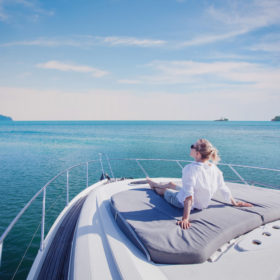 Law Office Located In Lutz
Law Office Located In Lutz
Have you been involved in a boat accident? We know that with good weather getting out on the water is a great activity, until it’s not. Accidents can cause severe injuries. We know how awful this must be for you. Your life has likely become very complicated and you are looking for a way to get justice. Our Florida boat accident lawyers will fight to get you nothing less than what is full and fair. Call us right away to set up your free initial consultation to get started.
Causes of Boat Accidents
In order to bring a claim, you must prove that there was someone who caused your accident because they were being negligent. Then, you must prove that, had they acted more carefully, you would not be hurt like you are right now.
You may be wondering if your accident would make you eligible to bring a claim. Here are the top examples of boat accident causes that might make you eligible to bring a claim:
Careless Operators
When people hop on a boat wanting to have a good time and their attention may be on things other than operating their boat. This inexcusable carelessness can hurt innocent victims like you.
Inexperienced Operators
When people try to operate a boat but don’t know what they are doing. Before someone tries to operate a boat, they need to have a full understanding of how to do so safely. Otherwise, they end up causing catastrophes.
Speeding
When a boat operator operates the boat at an excessive speed. They have less time to react to the dangers they encounter and they put themselves and other people on the water at danger.
Drunk Operating
Operating anything while you’re under the influence is not safe or legal. If you were harmed by someone who was drunk or on drugs while they were out on the water operating a boat, then you’re likely entitled to get the compensation you deserve.
Machine Failure
Anyone who uses a boat needs to make sure it is in good repair. If they neglect to care for their boat and then get in an accident due to something they could have and should have fixed, they are going to be responsible for the harm that causes.
There are several other reasons you may want to bring a claim. Our Florida boat accident lawyers are here for you and will tell you what legal action you should take.
How Your Claim is Valued
A boat accident claim’s value is based off of how badly you were hurt and how much damage the accident caused you. If you were left harmed so badly that you couldn’t return to work and you couldn’t enjoy playing with your kids or going for runs with your dog, it is all factored into your compensation result.
There are two categories of damages that you can be compensated for after a boat accident. The first one is called economic damages and the second one is non-economic damages.
Economic damages are things such as your lost wages, medical expenses, and rehab costs. Anything that you can see on a receipt or calculate on paper is typically going to be considered your economic damages. These are fairly easy to calculate since they involve easily accessible numbers. For example, if your daily wage for your job was $15 an hour, eight hours a day, and you missed 180 days of work due to your injuries, you can expect that $21,600 in lost wages will be calculated into your economic damages.
The other type of damages, which is non-economic, is harder to calculate because it is based on things such as the pain and suffering you endure after your accident. It can also be the loss of enjoyment in your life or the loss of quality of life. If you now suffer anxiety and depression due to your injuries, you can include that into your non-economic damages.
Our Florida boat accident lawyers are going to fight for your rights to full and fair compensation. You deserve to get compensation for every damage you have suffered from this accident. No one deserves to have been put through something as traumatic as a boat accident, and we want to fight to protect the rights of innocent victims.
Cost of a Boat Accident Lawyer
We had a client the other day in Tampa ask us if there were any upfront costs that were necessary to hire a lawyer to handle a boat accident claim. The answer is no. We handle these cases on a contingency fee, which means our attorney’s fee amounts to a percentage of the recovery, depending on what stage the case is in.
As far as costs, there are several costs involved. If you have to file a lawsuit, there are filing fees. There are service process fees. The way we handle these claims is if we accept the case, we will advance the costs. That way you’re not coming out of pocket in a time that is usually difficult where you’re trying to get through a situation where you’ve been injured. Give us a call at our Tampa office.
 Choosing The Right Boat Accident Attorney
Choosing The Right Boat Accident Attorney
Hiring an attorney is a very important decision, especially when you need someone to navigate through what’s usually a difficult time after you sustain an injury. It goes without saying, if it’s a boating accident case or an auto accident case, you need to communicate with your attorney so you can develop the trust that is necessary for you to be able to successfully prosecute your claim. At the initial stage during your consultation, you want to see your attorney. You want to be able to ask all the questions, and you want them to be able to talk to you about their opinion regarding the evaluation of your case. It is impossible to evaluate a case fully at the initial consult.
Throughout the journey and during the process, which sometimes can be a long arduous one, you need to have constant communication with your attorney. A client recently asked us how to hire the best boating accident attorney. It’s the one that’s going to talk to you and the one that has experience handling those claims. Give us a call and we’ll talk to you about your boating accident claim.
How Boat Accidents Differ From Other Accident Cases
We had a client that was involved in a boat accident in the Tampa Bay area. They asked a very good question during the phone consultation: “Are there damages that I can recoup in a case like this?” He had been injured from the negligence of another boating driver. Are the damages different from a regular auto accident personal injury case? The answer is no. It’s an injury case.
Sometimes, there are different issues that are involved with regard to liability and responsibility, but ultimately the damages that you recoup are going to be damages for past medical bills, the medical bills you’re reasonably certain to incur in the future, and damages for pain and suffering. Contact a lawyer who is experienced in handling boating accident cases. We can give you a free evaluation and take a look at your case. Give us a call in Tampa today.
Boat Accident Case Timeline
During a phone call we had with a potential client recently who had been involved in a boating accident, the client asked how long we thought his case might take. The answer to that is it depends on every single situation in the case. Particularly, it depends on how long it takes for the person to finish treating for medical care.
The second part is whether or not the insurance company is going to give us a reasonable offer or not without filing a lawsuit. Lately, it’s been the case that we often have to file a lawsuit, which is fine. If your case does have to go to litigation, it is going to take a little bit longer. It’s important to hire a lawyer that is familiar with litigation and taking cases all the way to trial. If you have questions about your boating accident case or really any other case, please give us a call.
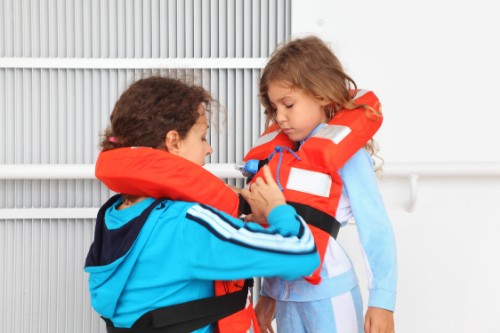
Working With Insurance in a Boat Accident Case
During a consultation recently for a client who was injured in a boating accident, they asked if they should work directly with the insurance company on their own. My advice is absolutely not. Many times, the insurance company will not take you seriously unless you hire a lawyer. It’s important to hire a lawyer that the insurance company will take seriously. Trial lawyers in particular are taken seriously by insurance companies, especially with boating accidents. If you were involved in a boating accident or if you have any other questions, please give us a call.
Common Mistakes in a Boat Accident Case
A potential client recently asked me what some common mistakes are that people make when they’re involved in a boating accident. The most important one is not hiring a lawyer that’s familiar with boating accident claims. There are numerous laws that are different for each type of case and numerous laws that apply to boating accidents in particular. It’s very important to hire a lawyer that’s one, familiar with boating accidents and two, will take your case all the way to trial if necessary. If you have any questions about your boating accident claim or any other questions, please give us a call.
Damages Available in a Boat Accident Case
If you are injured in a boating accident in Florida, there are various damages and elements involved in a claim. I had a client recently in Wesley Chapel ask me about what damages they could recover since they had been injured as a result of someone else’s fault in a boating accident. The damages are similar to any injury claim. You’re going to have damages for your past medical bills, the future medical bills you’re reasonably certain to incur in the future, and damages for pain and suffering in the past and the future, sometimes even lost wages, if it applies. You need a lawyer to be able to talk to you at that initial consultation to effectively evaluate your claim and guide you through a difficult process. If you have been injured in a boating accident, give us a call at our Wesley Chapel office.
When a Boat Accident Report Must Be Filed
We had a case come in recently in which there was an issue as to when you are supposed to report a boating accident case in Florida. In Florida, if you’re involved in a boating accident and there are injuries or property damage exceeding $2,000, you have to notify the police or Florida Fish and Wildlife as quickly as possible. If you have any questions about the timing of getting in touch with law enforcement or any other questions regarding a boating accident, please give us a call.
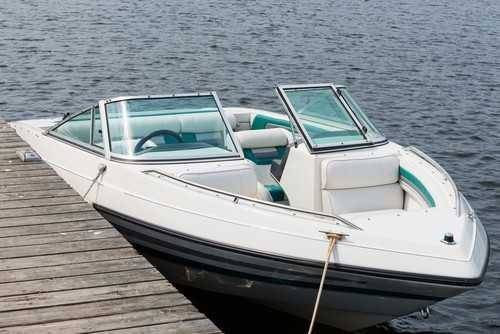 Liability For a Boat Accident Injury
Liability For a Boat Accident Injury
Boating accident injuries are tricky. We had a client recently who was injured in a boating accident in the Tampa Bay area. They asked at the initial consult who they could pursue for damages they had sustained? His damages were medical bills. His medical bills had eclipsed $50,000.
It turned out that there was an individual riding the other boat, and that person was negligent. They were driving the boat very fast, at very high speeds, and smashed into my client’s boat. He could pursue that driver as well as the owner of the boat. The owner of the boat would be vicariously liable or responsible for the actions of the permissible boating driver. Boating accident cases, like most cases, have to be navigated in a certain way. You need an experienced lawyer by your side who is willing to take your case to trial. Give us a call.
Call Our Florida Boat Accident Lawyers Today for a Free Consultation
If you’ve been hurt in a boat accident because of a negligent party, please call our Florida boat accident lawyers as soon as possible. We want you to get the results you deserve and get justice for your damages. Do not hesitate to reach out to us as soon as you can. We want to hold the liable party accountable for what they did to you. Call us today to set up your free initial consultation.
Like Us on Facebook
How Boat Accidents Differ From Other Accident Cases
Watch this video about how boat accidents differ from other accident cases in Tampa Bay. Then call Serrano Law for a case review.
Question:
How is seeking compensation for a boat accident different from other accident cases?
Answer:
We had a client that was involved in a boat accident in the Tampa Bay area. They asked a very good question during the phone consultation: “Are there damages that I can recoup in a case like this?” He had been injured from the negligence of another boating driver. Are the damages different from a regular auto accident personal injury case? The answer is no. It’s an injury case.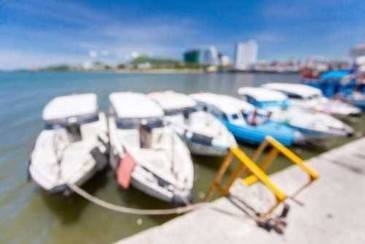
Sometimes, there are different issues that are involved with regard to liability and responsibility, but ultimately the damages that you recoup are going to be damages for past medical bills, the medical bills you’re reasonably certain to incur in the future, and damages for pain and suffering. Contact a lawyer who is experienced in handling boating accident cases. We can give you a free evaluation and take a look at your case. Give us a call in Tampa today.
Were you or a loved one seriously injured while out on the water and have questions about how boat accidents differ from other accident cases? Contact experienced Florida boat accident lawyers at Serrano Law today for a free consultation and case evaluation.
Serving clients throughout Tampa Bay and Hillsborough County
Like Us on Facebook
[/col]





